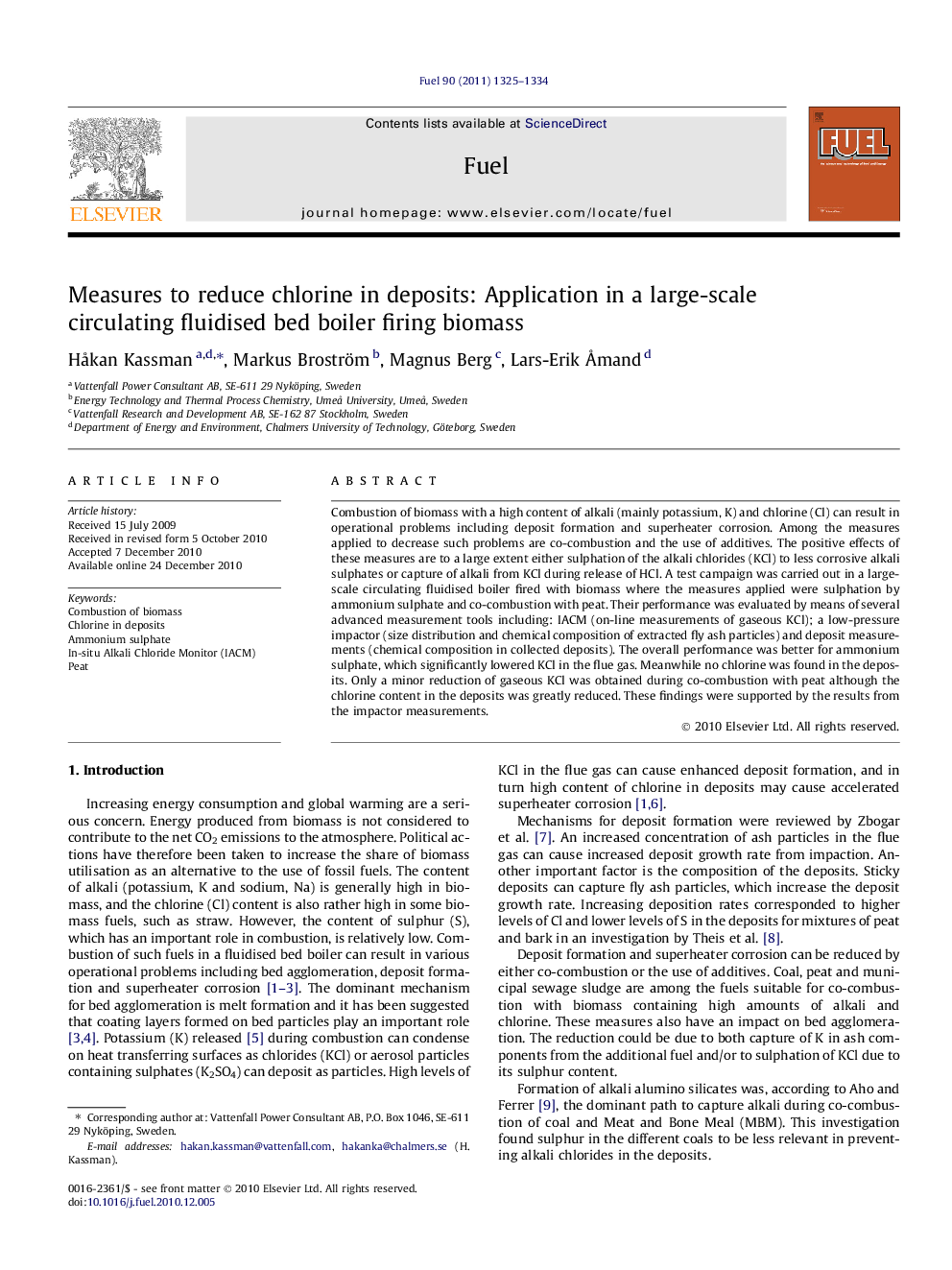| Article ID | Journal | Published Year | Pages | File Type |
|---|---|---|---|---|
| 10272951 | Fuel | 2011 | 10 Pages |
Abstract
Combustion of biomass with a high content of alkali (mainly potassium, K) and chlorine (Cl) can result in operational problems including deposit formation and superheater corrosion. Among the measures applied to decrease such problems are co-combustion and the use of additives. The positive effects of these measures are to a large extent either sulphation of the alkali chlorides (KCl) to less corrosive alkali sulphates or capture of alkali from KCl during release of HCl. A test campaign was carried out in a large-scale circulating fluidised boiler fired with biomass where the measures applied were sulphation by ammonium sulphate and co-combustion with peat. Their performance was evaluated by means of several advanced measurement tools including: IACM (on-line measurements of gaseous KCl); a low-pressure impactor (size distribution and chemical composition of extracted fly ash particles) and deposit measurements (chemical composition in collected deposits). The overall performance was better for ammonium sulphate, which significantly lowered KCl in the flue gas. Meanwhile no chlorine was found in the deposits. Only a minor reduction of gaseous KCl was obtained during co-combustion with peat although the chlorine content in the deposits was greatly reduced. These findings were supported by the results from the impactor measurements.
Keywords
Related Topics
Physical Sciences and Engineering
Chemical Engineering
Chemical Engineering (General)
Authors
HÃ¥kan Kassman, Markus Broström, Magnus Berg, Lars-Erik Ã
mand,
